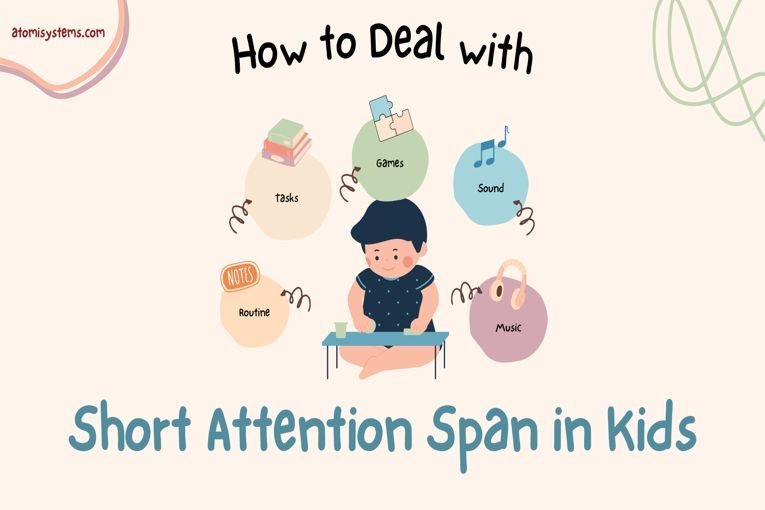Understanding the Importance of Attention Span in Children
Attention span is a crucial cognitive skill that allows individuals to focus on a task or activity for a sustained period of time. In children, attention span plays a vital role in academic performance, social interactions, and overall development. Children with a short attention span may struggle to concentrate in school, follow instructions, or engage in activities for an extended period. Fortunately, there are various strategies and techniques that parents and educators can employ to help improve a child’s attention span and enhance their overall cognitive abilities.
Creating a Structured Routine
Establishing a structured routine can significantly improve a child’s attention span. Children thrive on predictability and consistency, so having a set schedule for daily activities can help them stay focused and organized. Make sure to include regular meal times, playtime, study time, and bedtime in the routine to provide a sense of stability and structure. A structured routine helps children know what to expect and reduces distractions, allowing them to concentrate better on tasks at hand.
Limiting Screen Time
Excessive screen time, including television, video games, and smartphones, can have a negative impact on a child’s attention span. Limiting screen time and encouraging more interactive and hands-on activities can help improve attention span. Engage children in outdoor play, arts and crafts, reading, and other activities that stimulate their brains and foster creativity. By reducing screen time, children can develop better focus, concentration, and attention to detail.
Encouraging Physical Activity
Physical activity is essential for promoting brain health and improving attention span in children. Regular exercise helps stimulate the release of neurotransmitters that are crucial for attention and focus. Encourage children to engage in physical activities such as sports, dancing, yoga, or simply playing outdoors. Physical exercise not only improves attention span but also enhances overall cognitive function and mental well-being.
Break Tasks into Manageable Chunks
Children with a short attention span may feel overwhelmed by long or complex tasks. Breaking tasks into smaller, manageable chunks can make them more achievable and help children stay focused. Encourage children to focus on one task at a time and provide positive reinforcement as they progress through each step. By breaking tasks into smaller components, children can build their confidence, improve their attention span, and develop a sense of accomplishment.
Utilizing Visual Aids and Interactive Learning
Visual aids and interactive learning tools can be highly effective in improving a child’s attention span. Use colorful charts, diagrams, flashcards, and interactive games to make learning more engaging and interactive. Visual aids help children process information more effectively and retain key concepts. Interactive learning activities, such as educational apps and hands-on experiments, can capture children’s interest and sustain their attention for longer periods.
Encouraging Mindfulness and Relaxation Techniques
Teaching children mindfulness and relaxation techniques can help improve their attention span and reduce stress and anxiety. Practices such as deep breathing, meditation, and yoga can help children calm their minds, improve focus, and enhance their ability to concentrate. Encourage children to take short breaks during study sessions to practice mindfulness techniques and recharge their mental energy. By incorporating mindfulness into daily routines, children can develop better attention span and emotional resilience.
Providing Positive Reinforcement and Encouragement
Positive reinforcement is a powerful tool for improving a child’s attention span. Praise and encourage children when they exhibit good focus, concentration, and attention to detail. Recognize their efforts and achievements, no matter how small, to boost their confidence and motivation. Positive reinforcement helps build a child’s self-esteem and reinforces positive behaviors, leading to improved attention span and academic performance.
Seeking Professional Help when Needed
In some cases, children may have underlying issues such as attention deficit hyperactivity disorder (ADHD) that require professional intervention. If a child’s attention span significantly impacts their daily functioning and academic performance, it is important to seek the guidance of a healthcare provider or mental health professional. They can provide a comprehensive assessment, diagnosis, and appropriate interventions to help improve the child’s attention span and overall well-being.
Conclusion
Improving a child’s attention span is a gradual process that requires patience, consistency, and support from parents and educators. By implementing strategies such as creating a structured routine, limiting screen time, encouraging physical activity, and utilizing visual aids, children can enhance their attention span and develop essential cognitive skills for success in school and beyond. With the right guidance and support, children can thrive and reach their full potential.


